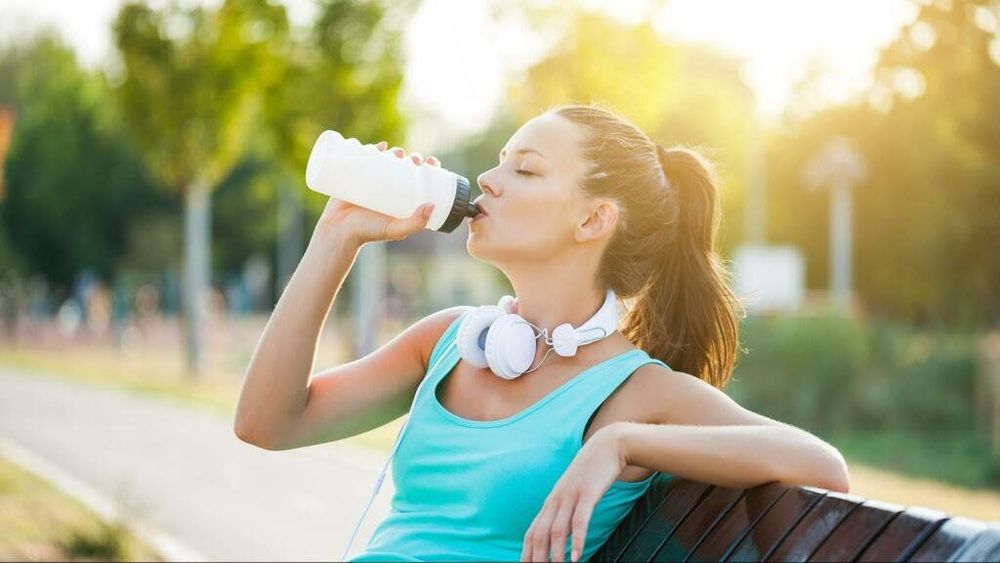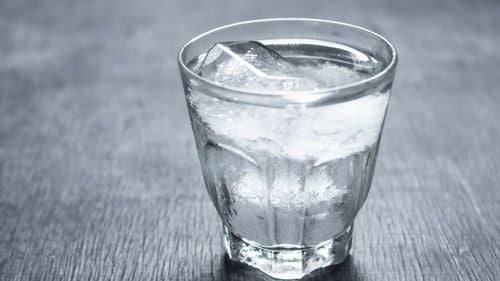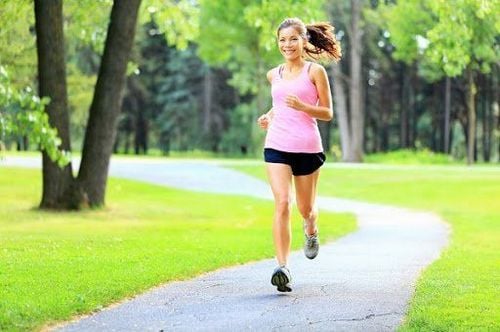This is an automatically translated article.
Keeping enough water for the body is essential for anyone, especially for athletes. Because water is an important nutrient that controls many vital activities of the body such as regulating temperature, lubricating joints, transporting nutrients throughout the body, and eliminating and eliminating toxins. Movement to stay hydrated is one way to stay in shape.
1. Risks when athletes lose water
Studies show that athletes can lose at least 2% of their body weight when sweating makes the heart work harder by reducing blood flow to this organ. Decreased blood volume can also lead to muscle cramps, dizziness, and fatigue.
Not replenishing enough water for the body makes it difficult for athletes to reach the top in matches. Dehydration reduces endurance and body temperature. The effects of dehydration for each athlete can vary depending on the outside temperature, humidity, altitude and duration of competition and prolonged training. In particular, the hotter the weather, the more pronounced the loss of water through perspiration and can affect performance.
Some of the causes of dehydration in athletes are:
Exercising at high altitude increases the likelihood of dehydration leading to a high need for water. Temperature: Exercising in a high temperature environment increases the body's excretion of water through perspiration. Athletes often sweat more, thus, increasing the risk of dehydration. Exercise for many hours continuously
2. How much water is enough?
Experts recommend that the elderly should drink 8 glasses of water / day. Young athletes need more water. For example, a girl weighing 54 kg should drink at least 1.8 liters of water per day, equivalent to about 7.5 cups of water.
The Institute of Medicine recommends that teenage girls drink 2.3 liters of water per day and 2.7 liters for young women aged 19 to 30.
To ensure fitness and enough water for the body, you should drink 2 glasses of water before exercising outside about 2 hours, whether it is walking, jogging, cycling or tennis sport . During the activity, every 15-20 minutes should drink a glass of water to provide enough water for the muscles. If you're planning on going for an hour-long walk or gym session, always carry a water bottle with you.
In general, how much water an individual should drink each day will likely vary depending on the sport they are playing, the duration of the activity and the training environment.

Việc uống đủ nước sẽ phụ thuộc vào môn thể thao họ chơi
3. What kind of water is best for the body?
For most outdoor activities, filtered water provides the most benefits. If your activity lasts an hour or more, a fruit juice or sports drink will help provide energy-producing carbohydrates along with minerals to replace lost electrolytes (sodium, potassium). , magnesium) during sweating.
Sports drinks like Gatorade, Powerade and All Sport can provide the energy needed during physical activity. They work to quickly replace fluids and increase the amount of sugar (glucose) circulating in your blood. When using sports drinks, you should read the label carefully to see the ingredients. The best in this drink should provide about 14 grams of carbohydrates, 28 mg of potassium and 100 mg of sodium per serving. Carbohydrates of drinks require glucose, sucrose or fructose. You should not drink carbonated drinks because their foam can lead to stomach upset. Fortunately, most sports drinks are diluted and contain relatively few calories.
4. Tips to stay hydrated
To assess whether the body is in a state of lack or enough water, you can monitor the color and volume of urine throughout the day. If the body is sufficiently hydrated, the athlete will urinate every 2 - 4 hours and the urine will be light yellow. In contrast, a dehydrated athlete will urinate less, the urine is darker in color, and the dosage is small.
Athletes need to make sure to provide enough water for the body before and during competition training. At the same time, choose the best types of water to replenish. Sports drinks are recommended because they contain electrolytes and a small amount of sugar that promotes better performance than pure water.
Besides, many athletes wonder, is drinking a lot of water dangerous? In fact, if athletes drink too much water, it will lead to hyponatremia (water intoxication). Therefore, you should consider adding water according to the recommended dosage, sport and physical activity level.
Please dial HOTLINE for more information or register for an appointment HERE. Download MyVinmec app to make appointments faster and to manage your bookings easily.
References: mayoclinic.org, webmd.com, verywellfit.com













